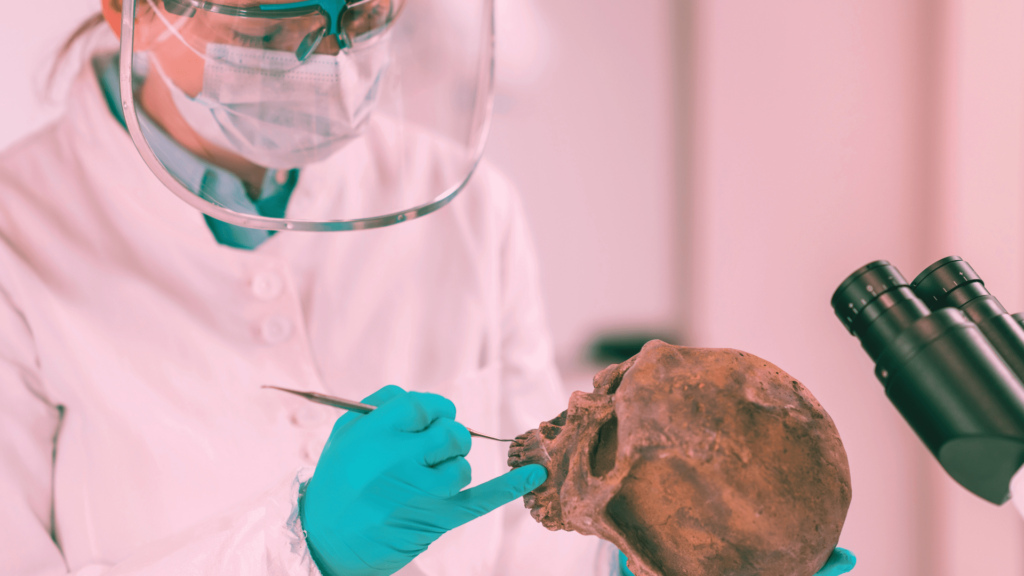Getting a tattoo nowadays is cool, simple, and almost a trend. I am not going to lie – even I think of getting one sometimes because well…… Why not?
But in this article, I am here to talk about the “why not” part – the part no one really tells you. So, read ahead and save yourselves with me.
Shocker: it messes with your DNA.
Unbelievable, right?
But trust me, by the end of this article, you will change your mind.
Let’s understand this with a simple scientific explanation first.
Key Topics:
Tattoo Ink Causes DNA Damage
According to several studies and experiments, the real culprit behind DNA damage in this case is the tattoo ink.
Tattoo inks contain a complex mixture of chemical impurities – heavy metals, nanoparticles and preservatives– that are suggested to increase the chances of cytotoxicity, genotoxicity and adaptive stress response pathways.
Sounds overwhelming? Let me break down these terms for you in the simplest way possible.
Cytotoxicity:
This means the tattoo ink can be toxic to your cells. It can slow down cell growth or even kill healthy cells, ‘kind of’ like when your body gets exposed to something it can’t handle.
Genotoxicity:
This refers to the ink’s ability to damage your DNA– the instructions inside your cells. When DNA is damaged, it can lead to mutations, and in the worst cases, this might increase the risk of diseases like cancer.
Adaptive stress response:
When your body senses danger, it activates defense mode. This is called an adaptive stress response– your cells try to fight back, but if they cannot, it can cause inflammation and long-term harm.
Let’s dive deeper to know what the studies actually find.
As highlighted in a study published in the Journal of Hazardous Materials (October 2015), a group of researchers – Peta A. Neale, Daniel Stalter, Janet Y.M.Tang, Beate I. Escher – decided to dig deeper into the possible effects of tattoo ink on our cells.
Their goal was to find out whether the chemicals present in the tattoo inks could trigger harmful cellular responses.
So, using real cell-based experiments, they tested a variety of commercially available tattoo inks. And the results were alarming.
These inks didn’t just stay on the skin; they were found to cause cytotoxicity, DNA damage, and trigger adaptive stress responses in the body.
Want proof? I got you.
In our body whenever something unusual happens a pathway is triggered or say our body has a way to respond to it. Scientists noticed these responses when they performed the experiments.
DNA damage happens at a cellular level, which is a serious problem and as a biotechnologist myself, you can trust me on this.
In response to this, the SOS response was activated, which is basically your cell’s emergency alarm system. And not just that– a special gene p53 was also activated.
p53 is often called “guardian of the genome.” In such situations, it either instructs cells to repair or, if the damage is beyond repair, apoptosis takes place to prevent mutation or cancer.
And finally, the body showed signs of oxidative stress (damage caused by free radicals).
All of these reactions? They were directly triggered by tattoo ink, the present experiment suggests.
Imagine your body going through all of this just because you want to look cool.
Sounds unfair, right?
Some studies even show the direct risk of skin cancer and lymphoma from tattoo ink exposure. What I’ve shared with you so far is just the tattoo ink part.
The needle that pierces your skin? That’s a whole other story.
And the environment where you get tattooed – how sterile or contaminated it is – also plays a major role in your body’s safety.
Related articles:
- Is Migraine Genetic

- 7 Rare Case Scenarios of Taste and The Genetics Behind Them

- 5 Traits You Won’t Believe Are Genetic

- How Malnutrition Can Affect Our Genetic Health

- How Fasting Can Benefit Your Genetics

Wrapping up:
I am sure now you exactly get the part about “ why we should not get our skins inked”
So, next time you think of getting a tattoo, don’t just consider the design.
Think about science. Think about your cells. Because your skin might heal, but your DNA might not.
Sources:
Neale, P. A., Stalter, D., Tang, J. Y., & Escher, B. I. (2015). Bioanalytical evidence that chemicals in tattoo ink can induce adaptive stress responses. Journal of Hazardous Materials, 296, 192-200. https://doi.org/10.1016/j.jhazmat.2015.04.051.


